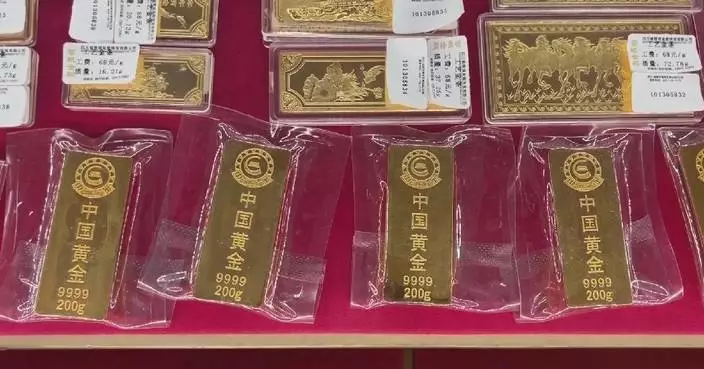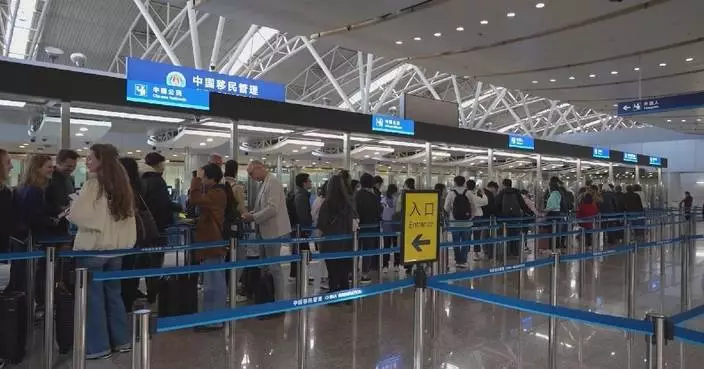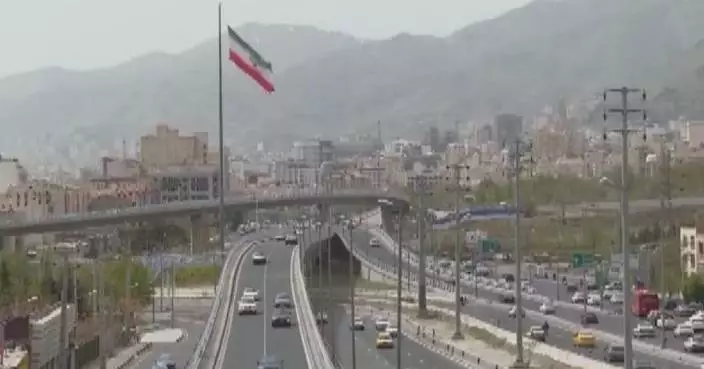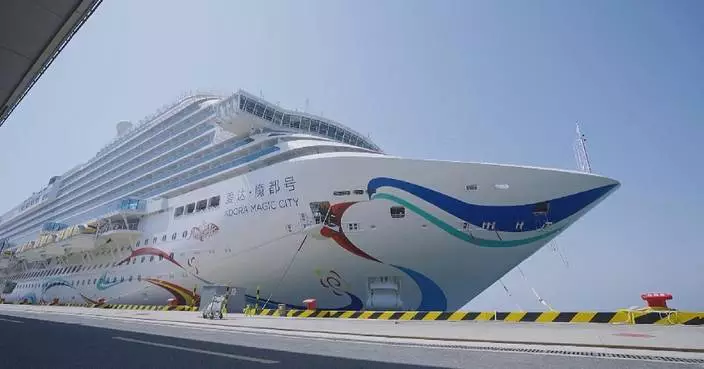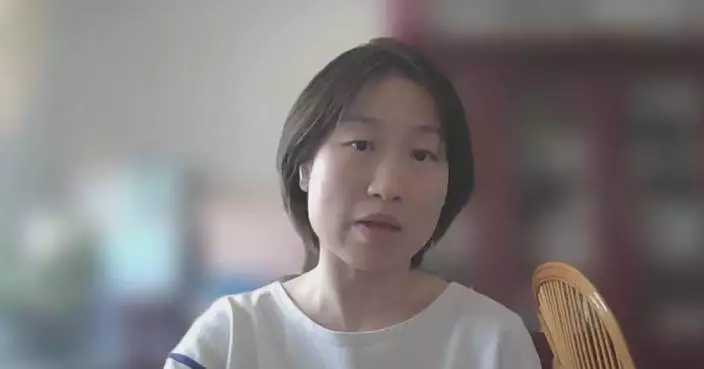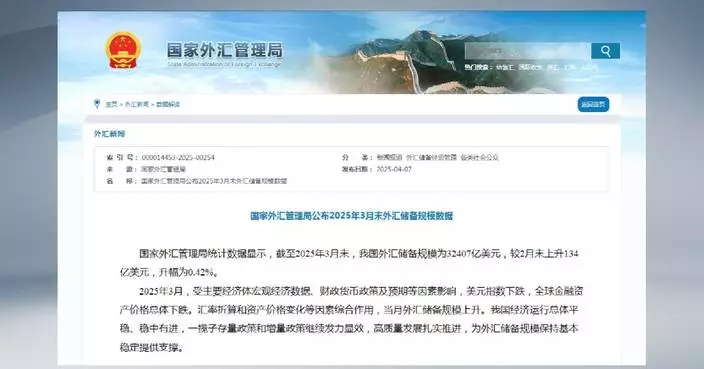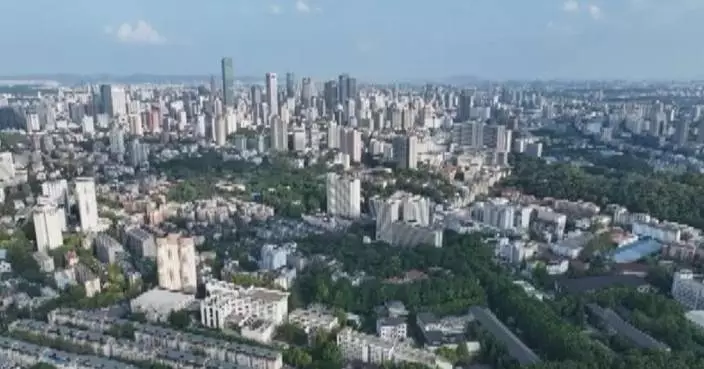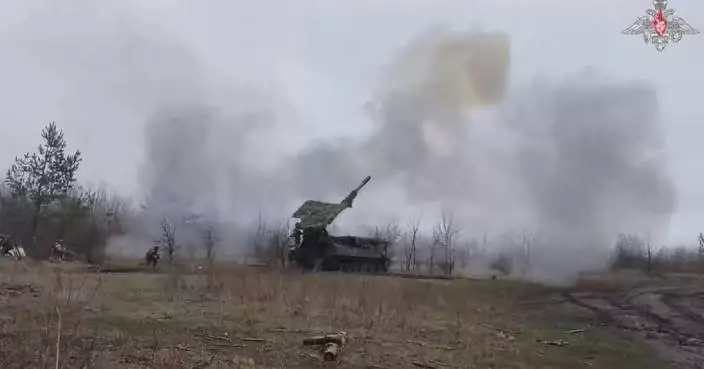The more rampant the separatist forces in Taiwan become, the more they risk the wrath of stronger countermeasures, said a commentary of the China Media Group's Real Point published on Wednesday.
An edited English-language version of the commentary is as follows:
On April 2, the Eastern Theater Command of the Chinese People's Liberation Army (PLA) conducted the "Strait Thunder-2025A" exercises in the central and southern parts of the Taiwan Strait.
The drills, which involved a carrier battle group, focused on identification and verification, warning and expulsion, and interception and detention to test the troops' capabilities of area regulation and control, joint blockade and control, and precision strikes on key targets.
The exercise represented another strong countermeasure against Lai Ching-te's rampant remarks and the secessionist activities.
From last year's "Joint Sword" exercises to this year's "Strait Thunder" drills, the PLA has continuously expanded its tools and methods to deter Taiwan separatist forces. Chen Guiqing, a researcher at the Taiwan Institute of the Chinese Academy of Social Sciences, told The Real Point the "Strait Thunder-2025A" exercises are more intense and more realistic, packing a stronger deterrent effect.
Since taking office in May last year, Lai, the Taiwan leader, has repeatedly advocated the so-called "new two-state theory". On March 13, he once again propagated separatist rhetoric, labeling the mainland as a "hostile external force" and proposing 17 so-called "strategies" in an attempt to completely sever cross-strait exchanges.
These separatist and conflict-provoking words and actions have been met with strong opposition from the people in Taiwan. The mainland took countermeasures to resolutely punish the separatist forces and defend the authority of the Constitution.
Some external forces have once again jumped out to rehash the rhetoric of "opposing unilateral changes to the status quo in the Taiwan Strait," making groundless accusations against China. However, it is necessary to clarify once again what the true "status quo of the Taiwan Strait" is.
Due to interference and disruption from external forces, cross-strait reunification has not yet been achieved. However, the fact that Taiwan is part of China has never changed, and China's sovereignty and territorial integrity has never nor will ever be divided - this is the true status quo of the Taiwan Strait.
From a legal perspective, a series of internationally legal binding documents such as the Cairo Declaration and the Potsdam Proclamation have clearly affirmed China's sovereignty over Taiwan. In 1971, the 26th United Nations General Assembly overwhelmingly passed Resolution 2758, which completely resolved, politically, legally, and procedurally, the issue of the representation of China, including Taiwan, in the United Nations. The resolution also spelled out that China has only one seat in the United Nations, and there is no such thing as "two Chinas" or "one China, one Taiwan."
At present, based on the one-China principle, 183 countries have established diplomatic relations with China. Meanwhile, Taiwan, under the Democratic Progressive Party (DPP) authorities, has been denied entry into the World Health Assembly for eight consecutive years and has lost 10 so-called "diplomatic allies". This fully demonstrates that the one-China principle is a universal consensus in the international community and a fundamental norm in international relations. The mainland's firm response towards the Taiwan secession forces reflects the spirit of the UN resolution and aligns with the international consensus.
Many countries and international organizations have explicitly stated that Taiwan is an inalienable part of China, and that they will continue to uphold UN General Assembly Resolution 2758 and firmly support the one-China principle.
In reality, the very external forces backing Lai Ching-te are the ones undermining peace and stability in the Taiwan Strait. The Taiwan question is China's internal affair. China will never allow anyone or any force to separate Taiwan from the motherland in any way. The more rampant the separatist forces in Taiwan become, the more they risk the wrath of stronger countermeasures.
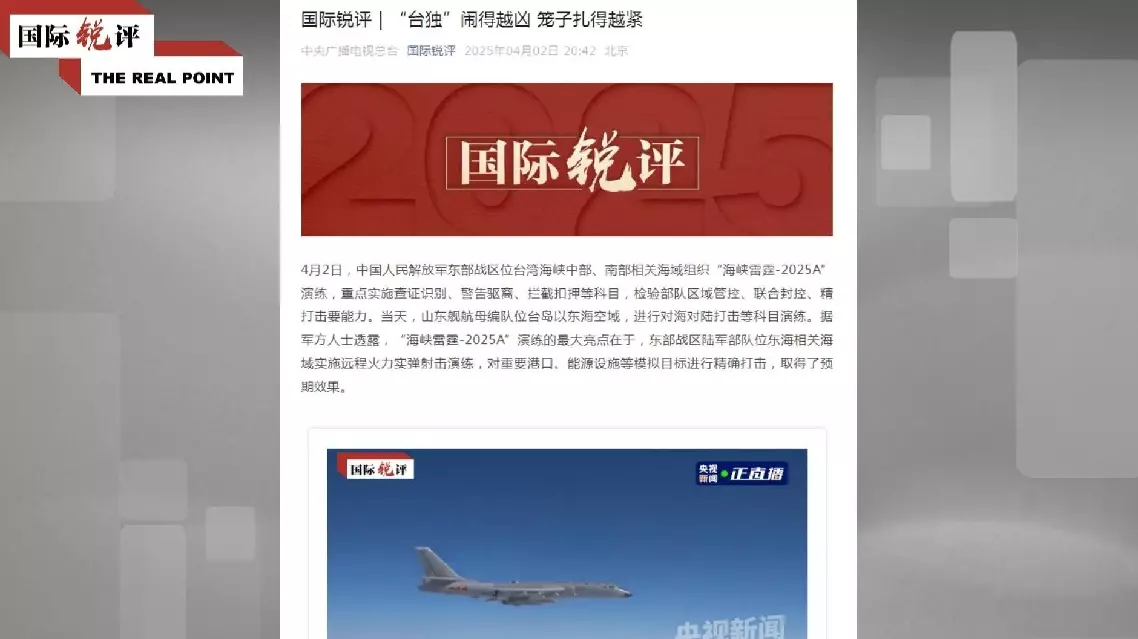
More rampant separatist acts will lead to more severe countermeasures: commentary




